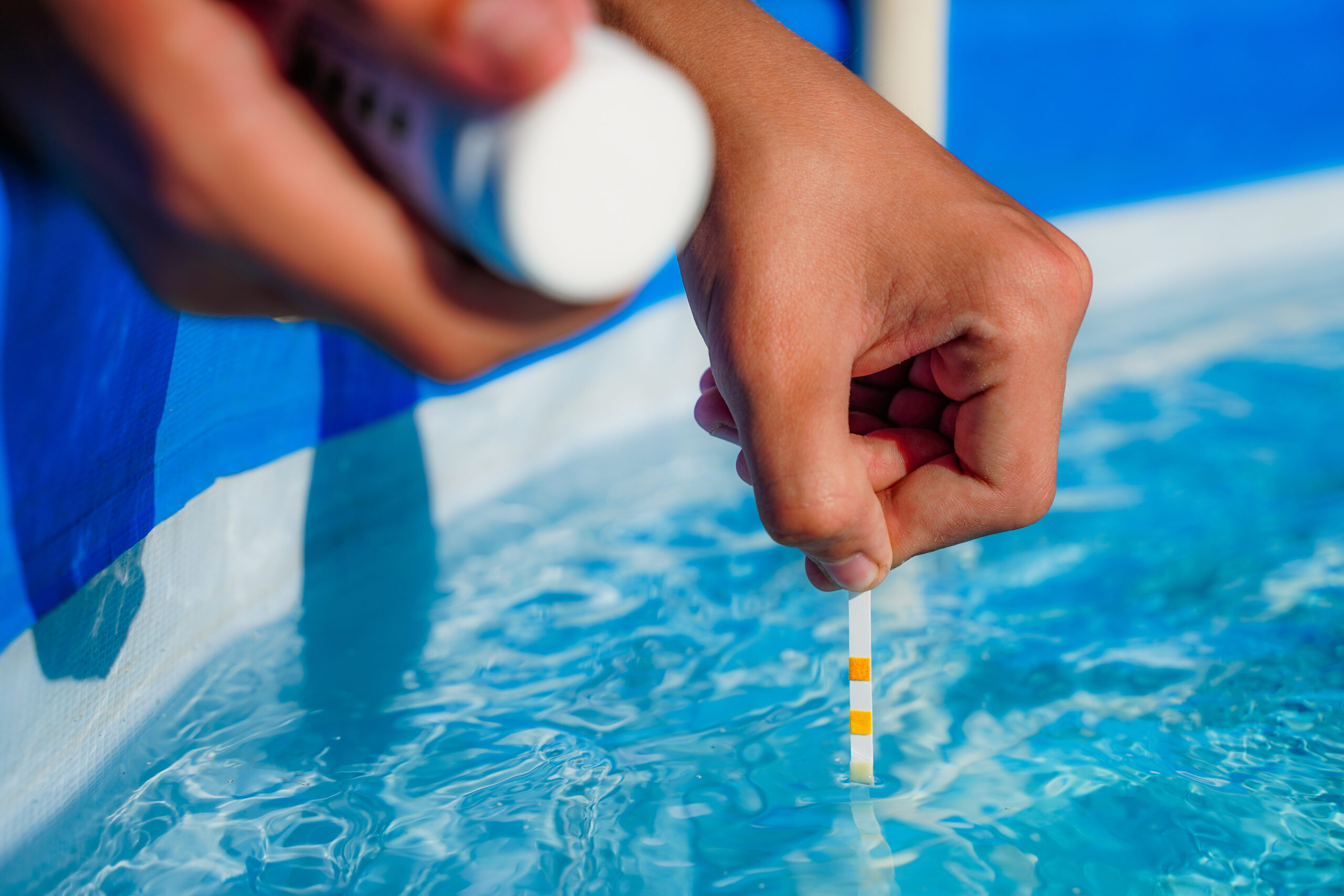One of the benefits of a salt water pool is that the chlorine that is produced doesn’t smell like chlorine normally does. So you can swim to your heart’s content and when you climb out of the pool, you won’t have a problem with your hair, skin and swimming clothes smelling like chlorine.
But there can be occasions where your salt water pool does give off a chlorine smell which is an indication that something is wrong.
A salt water pool shouldn’t ever give off a chlorine smell but when it does, it’s a sign that there is something wrong with the chlorine in the water. This smell typically occurs when there is a gap between the free chlorine available to sanitize the water and the total chlorine.
Below we’ll look at various aspects of chlorine in your salt water pool, the problems that can occur and how to address them.
What causes a salt water pool to smell like chlorine?
If your salt water pool is giving off a chlorine-type smell, it’s probably a combination of various bodily contaminants. Namely urine, feces and perspiration from human bathers combining with the chlorine in the pool.
Salt water pools normally don’t give off a chlorine smell as regularly chlorinated pools do. It’s one of the benefits of salt water pools. The other main benefits include less pool maintenance, lower chemical costs and water that is easier on the eyes.
Indoor salt water pools are more likely to give off a strong smell since the odor is contained. Outdoor salt water pools in your backyard on the other hand may only have a strong chlorine smell when you are up close to them.
Check your free chlorine level with a measuring strip and take a water sample to your pool company if necessary to get a professional opinion.
Why don’t salt water pools normally give off the same smell as regular pools?
The chemical chlorine used in pools gives off a strong smell. If you’re ever taken a whiff of the liquid version in a large container, you know what I mean. Not that I recommend doing that because I don’t.
I also don’t recommend inhaling chlorine crystals either because they also have a smell especially as the container is first opened and you don’t want to breathe any in.
Chemical chlorine does have a smell to it and it can be exacerbated once it’s circulating in your pool water. When chlorine in water mixes with pee, poo and sweat, it produces chloramines which is actually the strong chlorine-type smell that you notice.
If your salt water pool smells like chlorine, it’s typically a sign that you have a problem with your pool water but excessive chlorine is not the problem! Some people think that the chlorine smell is an indication that their pool has too much chlorine but this is incorrect.
When bodily fluids and other organic materials combine with chemical chlorine, it can produce the strong chlorine smell which is an indication that you either don’t have enough chlorine in the water or the chlorine that exists isn’t sufficiently working.

What is chlorine lock and can my salt water pool experience it?
Chlorine lock is when the ratio of Free Chlorine that is available to sanitize your water drops far below the Total Chlorine reading which is a sum of Free Chlorine and Combined Chlorine.
Normally Free Chlorine and Combined Chlorine should be close in number but when Free Chlorine drops to a much lower number, the water can be difficult to sanitize and thus the strong “chlorine smell” is produced.
It’s actually caused by the interaction between the chlorine and other sanitizing agents in the pool water and natural contaminants like urine, feces and sweat mixing together.
To summarize:
Free Chlorine: This is chlorine that is available at the time in your pool to sanitize the water. It’s the one you check for when you a water test with a testing strip for example.
Combined Chlorine: Combined Chlorine is chlorine that has already been combined with organic material in your pool and is thus unavailable to sanitize the water.
Total Chlorine: Total Chlorine = Free Chlorine + Combined Chlorine.
Chlorine lock often occurs because you put too much cyanuric acid (stabilizer) in the water.
Solving chlorine lock usually means draining water off and refilling the pool with fresh water. Check with your pool company before guessing to save you time and effort in case it’s another issue you’re dealing with.
Summary
A salt water pool should not have a chlorine smell at any time. The chlorine that is produced by a salt water chlorinator is different from the chemical type so it won’t smell nor will it leave a scent on your clothing, hair or clothes. It also won’t bother and redden your eyes.
If you do notice a strong chlorine smell around your salt water pool, it’s likely you have a problem such as chlorine lock which is typically solved by draining water and refilling it with fresh water.
Having said that, it’s probably best to take a water sample to your pool company first and explaining the problem before trying anything drastic, just to be safe.
Make sure you learn about how balance the water in your pool because one of the main benefits that this type of pool offers owners is that it’s relatively easy to maintain.

